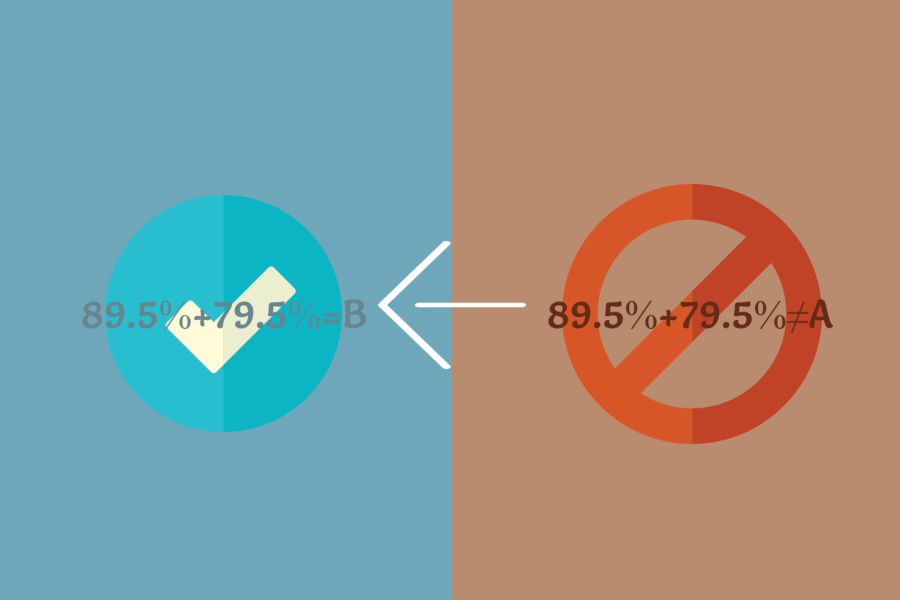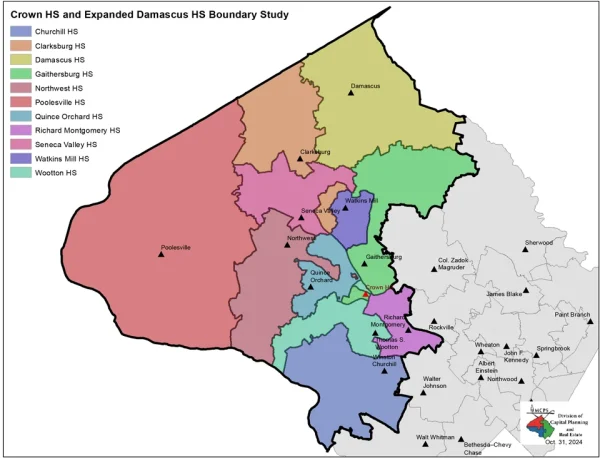Canvas connectivity issues disrupt morning classes, force teachers to postpone tests
Over six thousand students reported experiencing technical problems with Canvas this morning. As a result, many students were unable to access MyMCPS Classroom and complete tests and assignments.
March 25, 2021
Whitman students and staff members were unable to connect to MyMCPS Classroom — the school district’s primary networking platform — because of regional connectivity malfunctions with the system’s host website, Canvas, this morning.
6,376 users across the country had reported issues with Canvas as of 8:56 a.m.
“This is a regional issue with the platform and not unique to MCPS,” Assistant Principal Greogry Miller wrote in an email to Whitman community members. “We are working with the vendor to better understand the issue and a timeline for when the error will be fixed.”
Canvas resolved the malfunctions by 10:27 a.m., according to Instructure Status, which tracks the platform’s connectivity issues.
It’s unclear if the Canvas malfunctions caused any absences, since Whitman’s attendance office doesn’t keep track of the number of students who missed class due to the issues, according to attendance secretary Tabitha Davis.
The technical difficulties come two days before the start of spring break — a period that, for many classes, serves as peak test-taking time — and prompted several teachers to postpone students’ exams. Throughout the reschedulings, however, students and staff members said that they remained resilient.
Social studies teacher Andrew Sonnabend typically administers only six unit tests in his AP Comparative Government and Politics class each year, which made him all the more concerned when he began to suspect that one of those exams, which students were supposed to take today, may be “doomed,” he said.
About 10 minutes before first period, Sonnabend was preparing classwork on Canvas when another teacher texted him that the platform was experiencing issues. Sonnabend immediately refreshed his browser.
“That’s when the wheels started spinning, and things weren’t working, and it totally shut down,” Sonnabend said. “My mind started racing: ‘Well, what do I do? Because if period one can’t take the test, then periods two and four can’t take the test, even if it’s back up and running.’ I had to find something that worked for everybody.”
That solution, Sonnabend decided after consulting with his first period students, was to postpone the test. Students will have to take the exam asynchronously over spring break, but they’ll be able to drop their grade if they’re unsatisfied with the score they receive.
“If you think about it, with all the online classes we’ve had all year, we’ve had very few problems,” Sonnabend said. “So if they want to throw a problem at us on the last day before spring break, have at it. You’re not going to ruin my life. I’ll move on.”
Junior Merin Thomas, who was in Sonnabend’s first period class, said that her teacher’s positive outlook remedied any remaining disappointment about the test’s postponement.
“He was just like, ‘They’re all going to be happy about this, so I’m okay with it,’ and he had all of our best interests in mind,” Thomas said. “I’m a little salty, because I did stay up until like 1 a.m. to make sure I understood everything, but no test is no test.”
Like Sonnabend, the connectivity problems caused science teacher Kelly Garton to postpone a scheduled test, a move which students supported.
At the beginning of Garton’s first period AP Biology class, it was evident that the Canvas malfunctions would prevent students from taking their exam, junior Lauren Tan said. Within 30 minutes, Garton decided to postpone the test and require students to instead take it asynchronously after school.
“I can’t say I wish this would happen more often,” Tan said. “But I’d rather take it on my own time than take it at 9 a.m. in the morning, which is great.”
In contrast, the postponement disheartened junior Daisy Hester, who was also in Garton’s first period and stayed up late to study for the test last night. Still, Garton’s response to the situation eased Hester’s dismay, she said.
“I felt like he handled it really well, which is nice to see,” she said. “He understands that we have a lot going on, and he did a good job of not just making us do busy work for two hours.”
Students’ appreciation of their teachers went the other way, too. Science teacher Brent Bian became anxious after realizing that he wouldn’t be able to administer a test during his first period AP Physics class, but his students’ empathy helped him deal with the situation in a more relaxed manner, he said.
“I wish it didn’t happen, but at the end of the day there’s not really anyone I can blame,” Bian said. “It happens; technology happens.”
For Sonnabend, the connectivity issues and test postponement were more than just “frustrating”; they were ironic. Students in his classes last year were unable to take the same unit exam due to schools’ pandemic-induced closure, making this the second consecutive year that Sonnabend was unable to administer the test as planned.
“I really believe that there’s some cosmic force that does not want me to give an Iran unit test, because it’s now the second straight year that it will not happen in a normal fashion,” Sonnabend said. “But not being able to give a test today — or have class today — I don’t think that’s the doom and gloom scenario. We are all, I suppose, in this together.”










